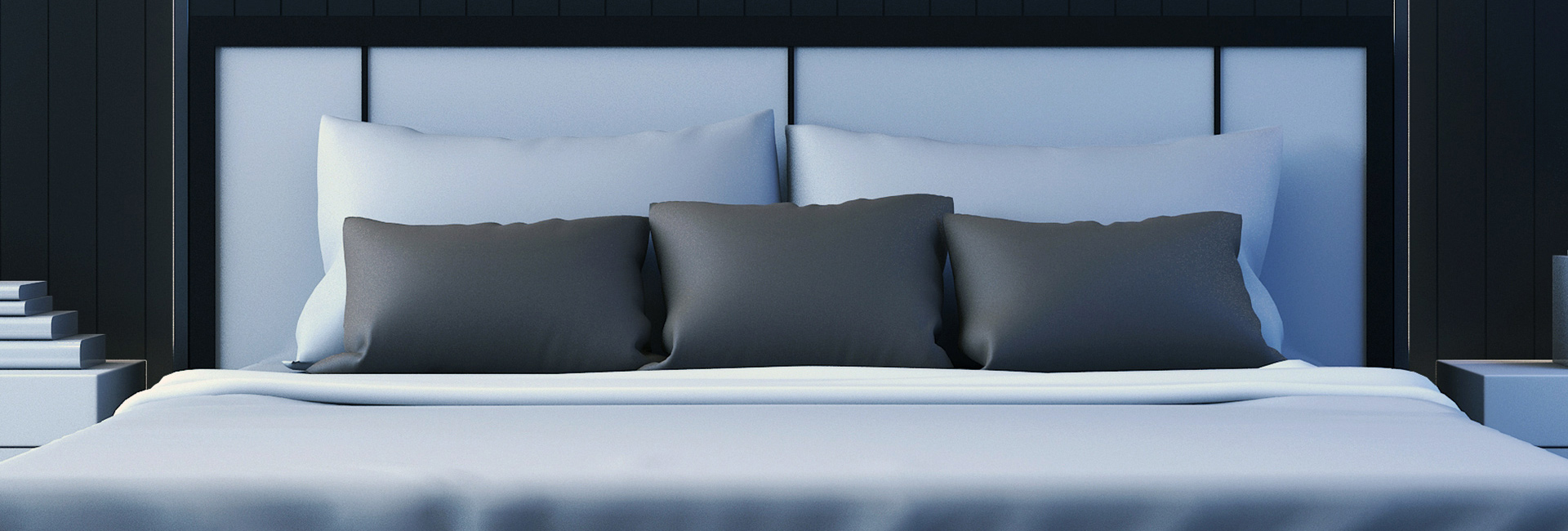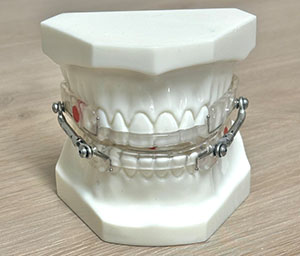
About Sleep Apnea
Sleep apnea is a serious condition in which a patient’s airway becomes blocked during sleep, causing them to stop breathing briefly. It’s important to know the risk factors, signs and symptoms of sleep apnea so that you can get treatment and restore your health
Why does sleep apnea occur?
Sleep apnea occurs when excess soft tissue at the back of your throat collapses and blocks your airway opening. It causes you to stop breathing briefly, which deprives your body of oxygen. The apneic episodes can occur anywhere from 5 – 100 times each hour, and the resulting oxygen deprivation results in a cascade of health effects.
Certain characteristics are associated with an increased risk of sleep apnea, including the following:
- Male gender
- Obesity
- Large neck circumference
- Congenitally small airway passages or jaws
- Nasal congestion
- Age
- Family history
- Use of alcohol or sedatives before bed
- Smoking
Common Symptoms
& Health Risks
What are the symptoms of sleep apnea?
The primary sign of sleep apnea is a noticeable pause in breathing. Patients themselves are unlikely to be aware of this symptom, but a sleeping partner may pick up on it. Other signs of sleep apnea include:
- Loud snoring
- Gasping for air during sleep
- Daytime drowsiness
- Frequent sore throats or headaches upon waking
- Dry mouth in the morning
- Mood changes
- Difficulty focusing or paying attention
What are the health risks caused by sleep apnea?
Sleep apnea doesn’t just make you tired and cranky. The physiological effects of this condition are significant. It appears to have some sort of relationship with systemic conditions like atrial fibrillation (irregular heartbeat), hypertension and stroke.
Other health conditions apparently associated with sleep apnea include type 2 diabetes and metabolic syndrome. People with sleep apnea even seem to face an increased risk of sudden unexplained death.
The underlying cause of all of these problems is likely inflammation in the body in response to the lack of adequate oxygen levels. To reduce the effects of sleep apnea, it’s essential for patients to get effective treatment.
Benefits of Treatment
Restful Sleep
A full night’s sleep for both you and your partner. Wake up feeling refreshed and rejuvenated.
Daytime Alertness
Experience increased concentration, memory, focus and energy.
Improved Health
Avoid the health risks caused by untreated sleep apnea and live a longer, healthier, more enjoyable life.
Sleep Apnea
Treatment Options
A Continuous Positive Airway Pressure (CPAP) mask is generally considered to be the gold standard of sleep apnea treatment, but many patients fail to use the mask properly, which renders it basically ineffective.
For patients who have abandoned their CPAP masks or want to avoid getting them in the first place, oral appliance therapy can be an effective alternative. This approach requires patients to wear a device that is similar to an athletic mouthguard while they sleep. The appliance holds the jaw or tongue forward, preventing airway obstruction.
Oral appliance therapy is more comfortable and convenient than CPAP masks, and patients typically are more likely to adhere to this treatment regimen.
If you notice signs of sleep apnea, or a sleeping partner alerts you to the presence of symptoms, you should schedule an evaluation as soon as possible to pursue treatment options and preserve your health.

